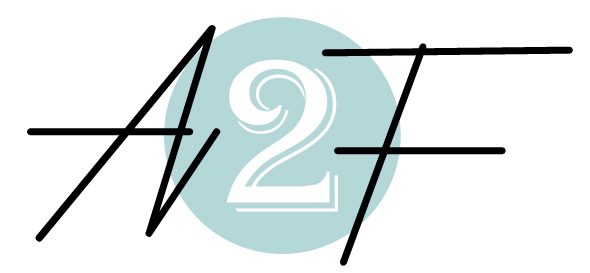What makes Indian fashion different from the creations of other designers around the world? It is the expert embroiderers and artisans of India who give each garment a unique value. Following the COVID-19 epidemic, many top embroidery brands have been left worried, with their artisans isolated in their villages.
What makes Indian fashion different from other designers’ creations? Answer: The country’s skilled artisans and embroiderers add incredible value to each garment. If you remove the embellishments on Indian outfits, the collections will fade into the spotlight. Designers from around the world have added value to their clothing by using this expertise. Following the COVID-19 epidemic, many top embroidery brands have been left worried, with their artisans isolated in their villages.
Milaaya Embroideries, a leading beading and embroidery house in India, is duly audited and compliant and was incorporated in both the US and India in the year 2000. Milaaya Embroideries, with its head office in Mumbai, has spread out to the fashion capitals of New York, Milan, and Paris. Milaaya offers embroidery services, including hand embroidery, beading, and machine embroidery. They also provide digital printing, hotfix, and finished and stitched garments and accessories.
The dying art of hand embroidery is being passed down from father to son in India. With the advancement of technology, education, and accessibility to other professions, hand embroidery has become a dying art. They work in comfortable and hygienic premises at Milaaya. The employees clock in for eight hours per day and receive EPF benefits, attend seminars and trainings, and their employers and colleagues respect them. Our clients include Balmain, Dolce and Gabbana, and other brands like Armani, Versace, and Etro. We also work with Michael Kors, Pamella and Roland, Paco and Rabanne, Marchesa, and Oscar De La Renta.
Intertek Group, which is a global company that conducts factory audits to ensure compliance and sustainability, performs an external audit every year. Milaaya has a score of 100% on both labor and the environment and an overall score of 86 percent. This puts Milaaya into the high-performance category for a sustainable factory. The 15,000 sq ft of office and factory space are located in the heart of Mumbai. Over 350 people work in our sampling, design, and production departments, as well as marketing, CAD, accounting, quality control, stitching, merchandising, and the stitching atelier. Around 160 hand embroiderers work in our company, and we have four machine embroiderers. We estimate that our loss is between 70 and 80 percent, while growth is expected to be around 20 percent in 2020-21.
Has caused a global economic slowdown. We must reinvent ourselves to adapt to new markets and situations. We are also learning to go with the flow. We try to recycle and reuse as much as possible and use our resources at the maximum level. We are always working on the R&D of products that will find a market during these unprecedented times. We offer to manufacture masks and loungewear for our customers to adapt to current market trends.
Only export to clients abroad. About 70 percent of the orders were canceled. We missed the entire pre-Spring period because most of our customers are from Italy and France, countries that were heavily affected by COVID-19.
Our team and management have been in contact with each employee since the lockdown began, ensuring their safety and well-being. They have also trained them to deal with the pandemic, as well as inform them about the safety precautions. We provided groceries and other necessities to those workers in need. When it was possible, many of our employees returned home. All safety measures have been taught and practiced by the 30 percent of our workforce that is in Mumbai to attend our office and factory. All our employees in Mumbai have been transported safely to the office. Offices are cleaned several times a day. The temperature of the employee is recorded and checked before they enter their office. Hands and other belongings are cleaned. PPE kits are provided, as well as foot covers. Masks and distance are required.
The strategy is to reinvent yourself and adapt. Working together and making the best use of resources is key. This time is also used to strategize and plan, and we do a lot of R&D. We have gained a wealth of experience working with luxury brands and manufacturing their embroideries, and we have now introduced our own Gaya brand. We are launching our first product, which is a premium printed fashion mask.
There will always be ups and downs in business. No business can be future-proof-calamities or not. As an organization, we are more aware of how we plan and use our resources. It is important to adapt and understand the constantly changing market needs and to have a backup plan ready in the event of an emergency.
We literally sourced from all over the world to meet the diverse needs of 150 clients. Our fabrics and raw materials for embroidery are sourced from Mumbai, Delhi, and Surat, but we also source fabrics, beads, sequins, and fabrics from New York and crystals from Paris. We have a store in our office where we keep the most popular embroidery materials and fabrics.
90% of our embroidery is done by hand, and 10% by machine. Hand embroidery may be more expensive, but it is not able to match the variety, richness, and quality of materials and techniques that are available. Machine embroidery is cheaper, more precise, and can produce large quantities, but it has limitations in terms of the colors, materials, or techniques available. Both are popular depending on the design and budget.
We create training modules and videos for all employees, including artisans, in the language they speak. We learn new trends in embroidery, new techniques, and new materials from international brands. Our embroidery designers work closely with artisans in order to bring these ideas to life. The artisans also learn from this and can add new skills to their repertoire. We offer seminars for personal development in addition to professional training.
We will continue to work with our existing clients, but we also want to expand into new markets. We are active in Italy, France, and the UK, as well as the US. We are looking forward to working with other brands in Europe, Australia, and Japan, as well as South America. Gaya is our retail brand, a luxury, global ready-to-wear line for men, women, and children. Our first product line is a collection of printed and embellished fashion masks. Now, we are working on launching tops, bottoms, and jackets. We also plan to launch t-shirts, loungewear, and a range of dresses. We hope to establish Gaya as a luxury and fashionable brand with a global soul in 2021.
SPM Garments, a Mumbai-based hand embroidery export company, has clients in the US, UK, and Australia. Sonal Garodia founded the company in 2013, and it has grown steadily, with an annual growth rate of 10%. Garodia, a NIFT Mumbai Gold Medalist, worked in the fashion industry for seven long years before deciding she wanted to start her own fashion export business. Initial seed money was collected from personal savings and a loan. Kiaan, a bridal high-fashion brand, is also operated under the same umbrella.
In normal times, we have between 25 and 30 skilled embroiderers in-house who specialize in aari hand-embroidered garments, bridalwear, and accessories. As a bridal embroiderer, you will be working with a lot of white products. You must also maintain high quality and detail.
We have popularised a technique called hand wiring. This is a unique technique that involves shaping wires with beads and stones in the air (hawa ka kam) to create a 3D-like product. These products are used to make bridal accessories and are very popular in the US, UK, and other markets.
Has changed the way businesses do business. Safety and precautions are now the main priorities. Design, accounts, and merchandising departments have worked from home. The factory has reduced the number of karigars under the supervision of a manager and supervisor who adheres to social distance norms and follows hygiene practices. Each karigar is seated at a set distance and has been instructed on the proper hygiene practices. Our clients are aware that logistics have become slower as the whole world has adjusted to the new norms. Working from home has become the norm, with office visits limited to important meetings.
We were already sampling for the New York Bridal Fashion Week in April when the pandemic struck India. The production was in full gear from orders for the October 2019 tradeshows. As a result, many samples were canceled. Slowly, it became apparent that all April trade shows were going to be canceled or held online. This would not attract the usual interaction. The production was stopped midway when the lockdown was announced. After June 1, lockdown standards were relaxed, and production resumed with new safety norms. Now, we are preparing for October 2020 tradeshows, but sampling is less than last year. We also predict a slowdown in 2021. The buyers are more cautious about where their money is going.
We have seen many weddings canceled or postponed with our high-fashion Kiaan brand, which specializes in bridal gowns. There has been a substantial drop in domestic business.
Workers are given an apartment near the factory, so they do not have to commute. This reduces their risk. The number of employees has decreased significantly during the April 2020 migration. We now have 50 percent of workers who adhere to social distance norms. Each worker receives cotton masks, sanitizers, and a standard distance between them at their embroidery frames. Our workers are provided with a roof and basic amenities. We must be sensitive to the needs of our workers beyond their business and provide help when possible.
Our specialization is the bridal industry. We know that weddings will still happen, even if they are delayed or canceled. The outlook for spending will be more conservative. We are also looking for ways to reduce costs by maximizing space and resources according to current working practices. We will monitor the budget and profit margin throughout the year. This will enable us to reallocate funds and adjust the budget for next year.
Make sure that the business model you use is sustainable. Our products and services should be essential. Optimizing business resources and reducing unnecessary costs is important. Proactive communication with clients to manage expectations and resolve uncertainties is a great step. In these situations, having an updated database as well as insurance can be helpful. Human capital is the most valuable asset from a business or economic perspective. You can focus on your business continuity plan if you ensure that employees are as safe as possible.
We source most of our materials locally because we hand embroider. There is still a small amount of raw materials that are imported from other countries. These include beads and stones from China and trims from Hong Kong. Fabrics come from Italy. Raw material imports from China have been severely impacted. We are replacing these items with Made in India products as much as we can.
In some cases, if the customer cannot accept certain changes in quality, there are order cancellations. In the first few weeks of the lockdown, the supply chains were severely affected. There were also shortages. We also stock up on items we use regularly.
Only hand couture embroidery is done by us. Each depends on the clientele. Machine embroidery is more popular if clients want more value for money, like Pret. It is the preferred method of hand embroidery for clients who are into haute couture. Because it’s exclusive and tailored to the client, hand embroidery is in high demand. Fast fashion is not as sustainable. Quantities are lower, but the value of each item is high.
We provide artisan training to new karigars. We look for people who have leadership qualities so they can gradually grow up to bigger roles such as supervisors, managers, etc. We team up with some karigars who are skilled at making beautiful samples with designers to create them. It is important to keep them informed about the latest embroidery techniques that are in fashion all over the world. Our clients visit the factories, where they can interact with the buyers’ design teams. They also learn a great deal.
Our plan for 2021 is different because 2020 has not gone as planned. In early 2021, a major part will be spent on recovering from the impacts of COVID-19. We will develop a flexible 2021 strategy. We can now look ahead to the coming year with these goals and plans. We reassess the current year’s goals every quarter. We take into account analytics, insights, reviews from customers, and other factors. We are considering the impact of this on our plans for moving forward and making adjustments accordingly.
Budgets are arguably one of the most crucial aspects of any company. The goal of increasing revenue and improving the bottom line should be an annual one. We should have our budget set up before the new year. We will be able to see as the year progresses if we have made the right decisions and if certain techniques are profitable.
Staying up-to-date on the latest trends is a great way to keep your company competitive. A new development may help us reach greater heights, even if our business is doing well. Due to the rapid advancement of technology and the global community, we may see something in 2020 that we did not know existed when planning for this year or 2021. Flexibility is also important. It is best to adapt your strategy according to the changing covid-19 environment.
Anand Gupta launched the Pretty Lady brand in 1989-1990 in Ghatkopar in Mumbai. He invested Rs10 lakh to build a workshop and an office of 2,500 square feet. Next, Anand Gupta invested in sewing machines for Rs2 lakh and an initial working capital amount of Rs10 lakh. The brand generated an average of Rs50-100 lakh in sales from these investments and gradually moved into a 3,600 sq. ft. space. The company suffered a loss during the 1992 Mumbai Riots because it was not insured.
The Indian bridalwear market kept Pretty Lady in the spotlight as 10-12 brides a month were dressed in glamorous creations. The Indian Bridalwear Market has kept Pretty Lady at the forefront of fashion, as 10-12 brides per month are dressed in gorgeous designs.
The lockdown and the covid-19 have had a devastating effect. Our current valuation would be around. Eight crore. Our turnover before COVID-19 was between.1.5 and. two crores, but has now dropped to a pitiful.50 lakh.
The problem is we cannot accept or pursue orders aggressively because working with new customers increases risk, while our old clients delay payments or pay only a part. Some companies have stopped production and concentrated on selling their existing stock.
Before COVID-19, our growth rate was not constant. Some years, it was 20-30%, and some years, it was 10-20%. At times, we struggled to match the previous year’s figures.
We had 80 embroiderers before covid-19. Now, there are only six. Pretty Lady, the oldest of our companies, began as a unit that specialized in hand embroidery, sewing, pattern-making, cutting, dying, printing, and other services. We provided complete manufacturing support to labels, brands, designers, and couture houses. Since I lived and worked in New York, my USP was the fact that I understood buyers’ issues better than anyone else. If there were any issues, we would let the buyer know and work together to resolve them.
Our customers were mostly based in the UK/EU until 7-8 years ago. Only in the past few years have we welcomed corporate Indian clients.
We are experts in all types of handwork, whether it is zardozi technique or aari, gota applique work, or cutwork. Our embroiderers come from traditional Nawabi embroidery families, so they are experts in the old art of zardozi. They used a technique in which they untwisted a silk thread to embroider using single-ply silk. Some of their children, who have been reluctantly drawn into the work, prefer to do aari embroidery because it is quicker. We had groups that excelled at different techniques, depending on the type of work. Remember that not every embroiderer can master all methods. We haven’t tried to revive any process, as we don’t drive the market.
We have taken on a social responsibility project by adopting a small hand-made paper unit in a village located off the Ajmer – Jodhpur highway, surrounded by sand and the desert. We mixed banana stem pulp with cactus and wildflower pulp, as well as cotton and silk waste, to make various papers. Women were taught to cut, bind, and cover the notebooks with handloom silks. These unique works of art caught the attention of Italian and French designers, who ordered the books to be custom-made for their lookbooks. They were also exclusively sold through an antique shop in Milan. There were a lot of problems with the project, mainly the telephone connectivity. Posts took almost a full week to arrive, and women often brought their children along. This made the work unsellable.
We have sufficient raw materials, and our suppliers can meet our requirements by 70%. Our demand is low, as we specialize in hand embroidery. Our workers are from embroidering families with a wealth of knowledge and skills. We must train them to the same level of finesse, quality, and finish. This is what they learn on the shop floor when they work alongside experts.
Managing the business during the pandemic was difficult. It is almost impossible to make any sales. We provided the minimum for the workers while they were in Mumbai. The majority of workers are still in their villages, either farming or working in government schemes. All seem to be happy. Nobody has expressed any desire to return. We get calls from them occasionally.
By being patient, we are planning our recovery strategy. Our savings may be needed to last us for two years. We will only accept a job if we are guaranteed payment. To future-proof our business, we plan to move to a digital platform and research diversion in fields such as pharma, food, etc. Future-proofing the impulse buying sector is not possible.
Karishma Swaali and Monica Shah, Founders of Jade:
The Jade collection by Monica Shah and Karishma Swali is the result of their creative spirit, dedication to India’s artisanal tradition, and passion for design. The label was established in Mumbai in 2008 under Chanakya International, the parent company. Jade is known for catering to brides around the world and its unique aesthetic, which blends traditional crafts and modern styles. Jade’s Ek Taar pieces include bridal ensembles and jackets that women in India, Italy, and beyond treasure. Jade’s core values are empowering women and celebrating India’s rich culture of arts and crafts. The brand puts India’s artisanal expertise at the center of everything it does while reflecting a timeless global sensibility.
Our e-commerce platform has been launched. Virtual consultations are available to both brides and their entourages. This has been a huge success. Our store is open three days a week. Visitors are only accepted by appointment. We are following all necessary sanitation procedures in order to ensure our safety and that of our clients.
Some of our employees are in their hometowns, and some are still in the big city. We make sure that our workers get paid and receive the necessary assistance.
We’re focusing on driving sales via our digital platforms. We want to provide a seamless and intimate shopping experience online. At the same, we ensure that our store offers the authentic and exclusive luxury experience for which it has become known in the best way possible. The future is digital. Online shopping and virtual experiences are becoming more popular. I believe it is important to have an online presence.
Our materials come from all over the country. Now, due to safety restrictions, sourcing is a difficult task. We are currently looking at local sourcing options.
The majority of our embroidery is done by hand, including couture. Our clients appreciate the effort and beauty of hand-embroidered couture pieces. They also understand why they are more expensive. Although hand-embroidered pieces don’t have the same mass appeal as fast fashion, they do have their loyal customers.
We founded the Chanakya School of Craft. The Chanakya Foundation, an independent NGO, focuses on women’s empowerment and all-round development by investing in education and skill development. Our mission is to provide women from low-income families with a high-quality education on hand embroidery and crafts so that they can maximize their potential and improve their lives.
We are focused on strengthening our online presence by leveraging technology to make couture and luxury easily accessible to women around the world. We are constantly innovating so that we can recreate the immersive, luxurious, and unique experience of our store online.




